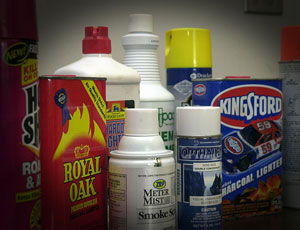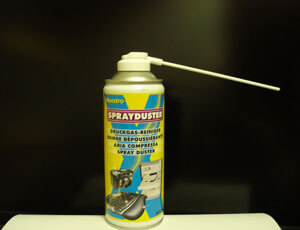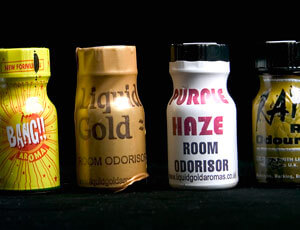- Over-the-Counter Drugs
- Prescription Drugs
Inhalants are legally available for their intended uses.
- If misused and/or abused, inhalants can cause loss of consciousness or death.
What are inhalants?
Inhalants are invisible, volatile chemical vapors inhaled to induce psychoactive or mind-altering effects. They are found in common household products such as glue, gasoline, lighter and cleaning fluid and paint. Less obvious inhalants include whiite-out type correction fluid, computer air duster, fingernail polish remover, paint thinner, air conditioning refrigerant, felt tip marker, air freshener and butane.
Common names are gluey, huff, rush and whippets.
How are inhalants misused?
Inhalants are breathed in through the nose or mouth by sniffing/snorting directly, bagging or huffing. Bagging is inhaling fumes from substances inside a plastic or paper bag. Huffing refers to either stuffing inhalant-soaked rags in the mouth or directly inhaling from nitrous oxide filled balloons. Dusting involves breathing in computer air duster fumes through the nose or mouth.
Inhalants are often among the first drugs used by children, and one in five kids report using inhalants by the eighth grade.
How do inhalants affect a person?
Inhalants cause slurred speech, lowered inhibitions, lack of coordination and unconsciousness.
What are the health effects/risks of using inhalants?
Prolonged use leads to weight loss, muscle weakness, disorientation, inattentiveness, lack of coordination, irritability, depression and damage to the nervous system. Inhalants such as butane, propane and chemicals in aerosols commonly induce irregular and rapid heart rhythms or respiratory obstruction, sometimes leading to death within minutes.
Some inhalants cause more severe long-term effects including liver and kidney damage, hearing loss, bone marrow damage, limb spasms and brain damage. Many effects of prolonged misuse are irreversible.
Frequent inhalant misuse over a short time span can lead to death by asphyxiation.






